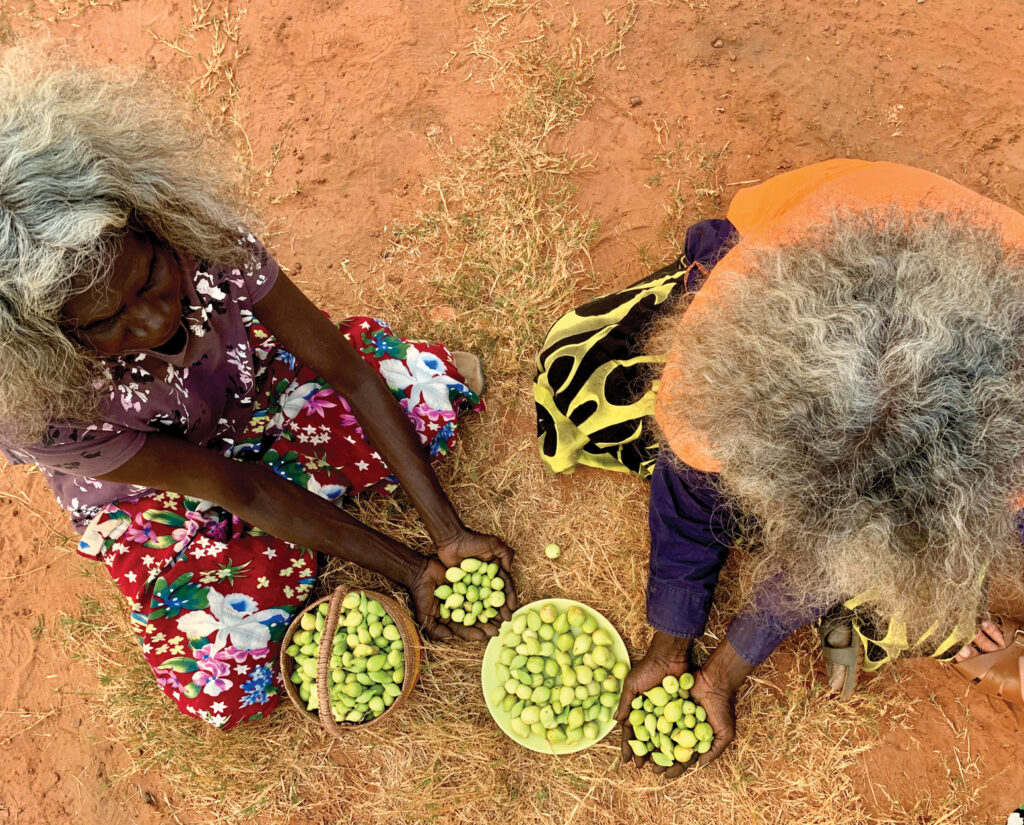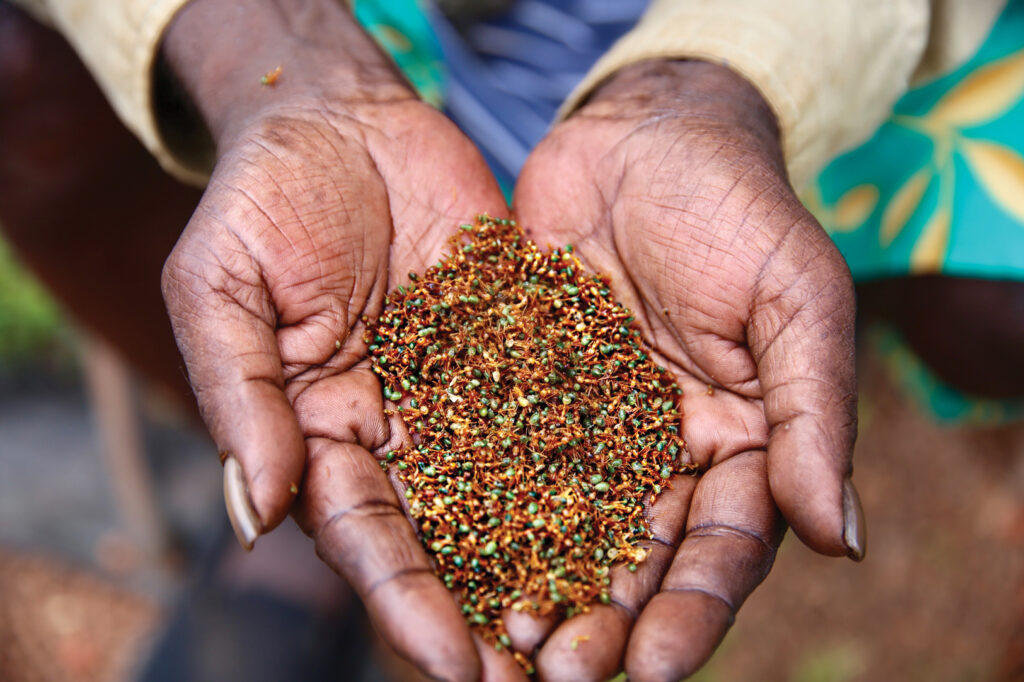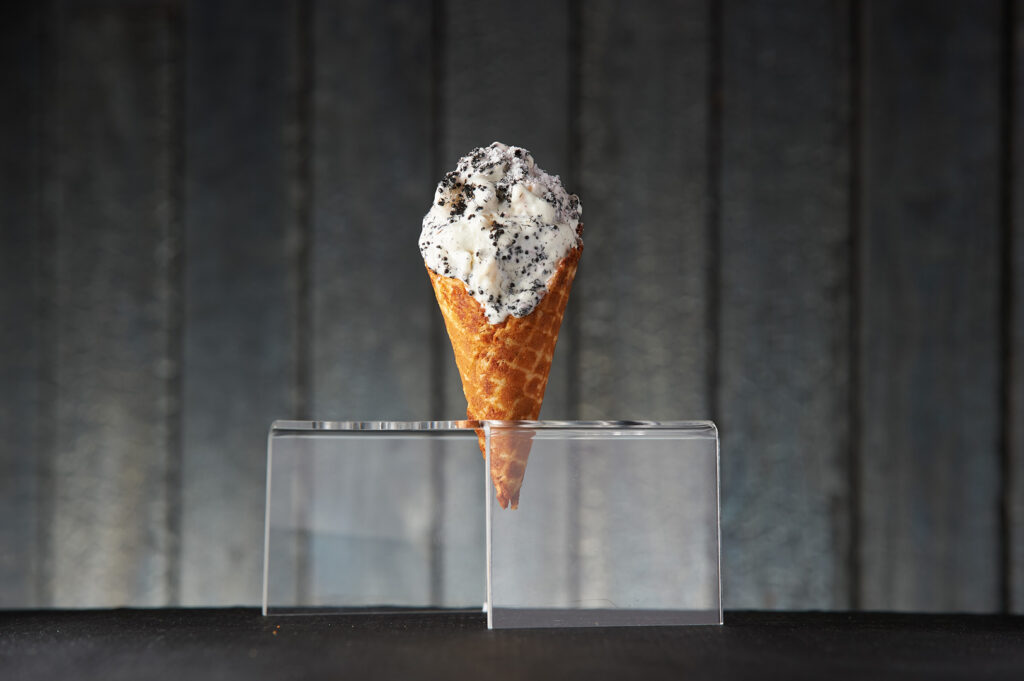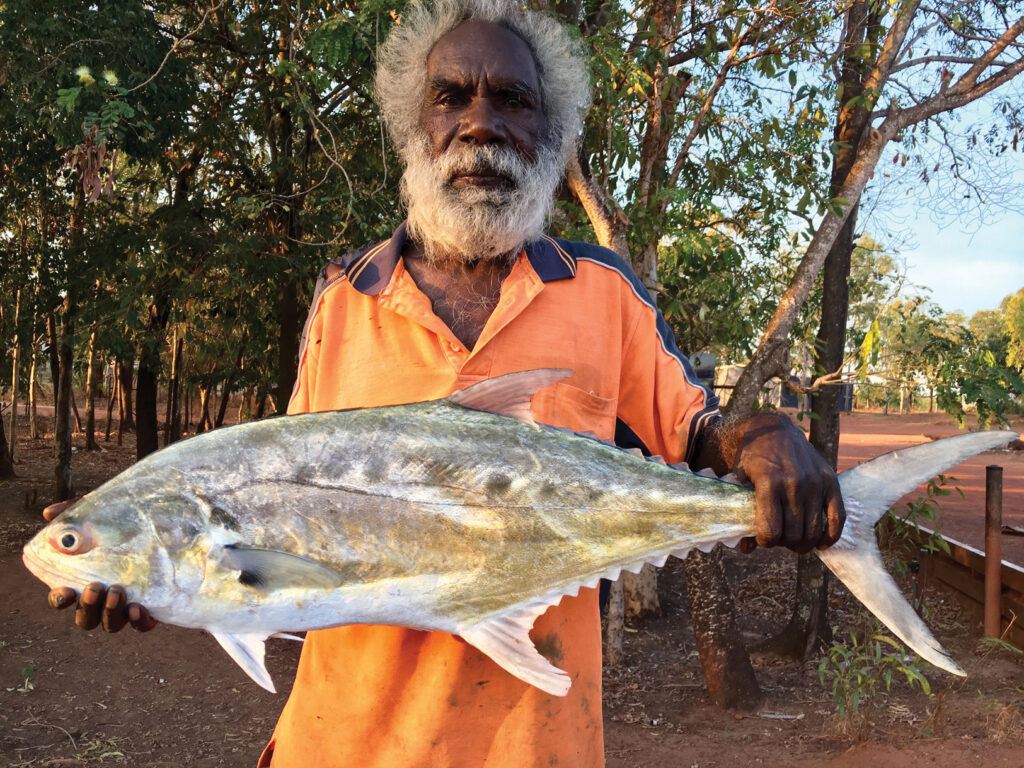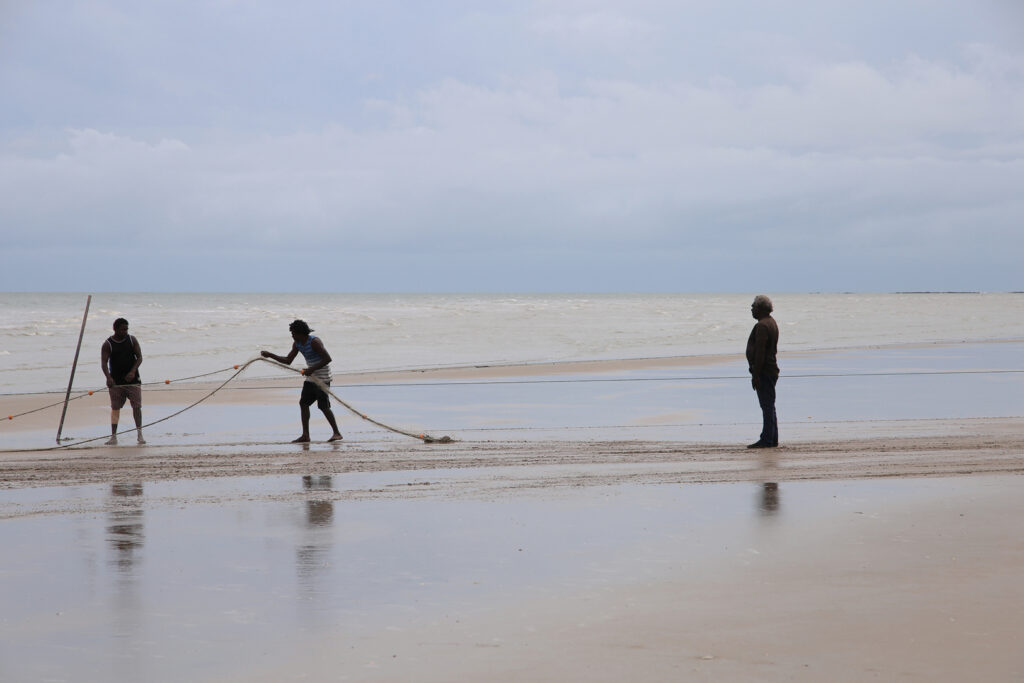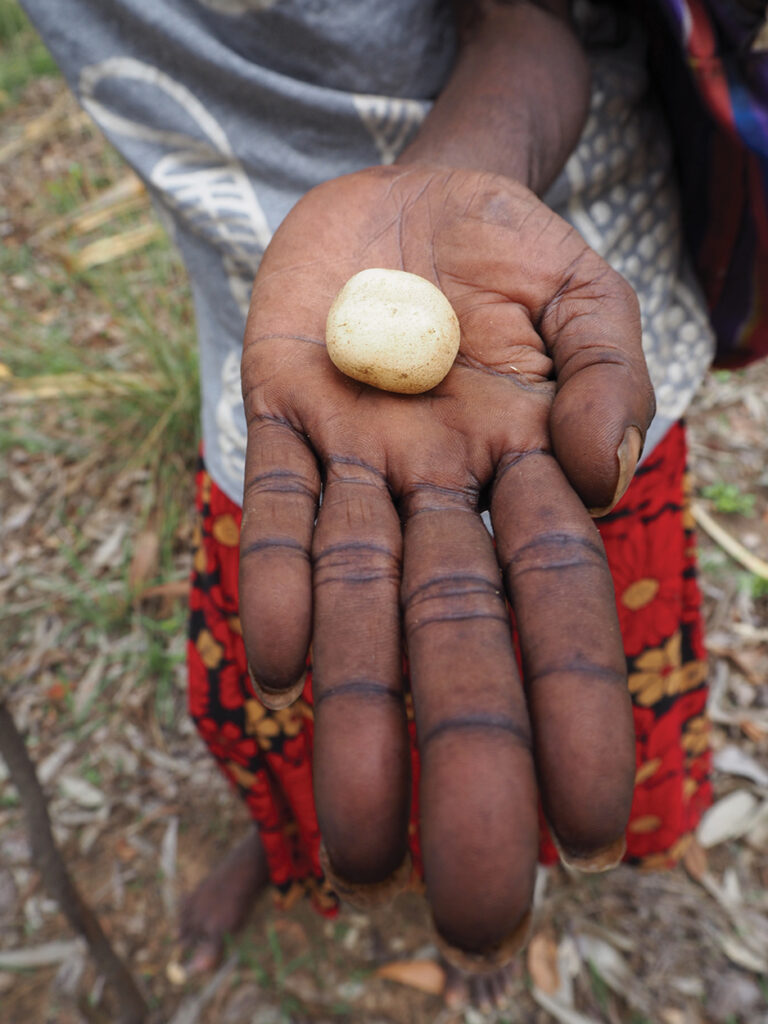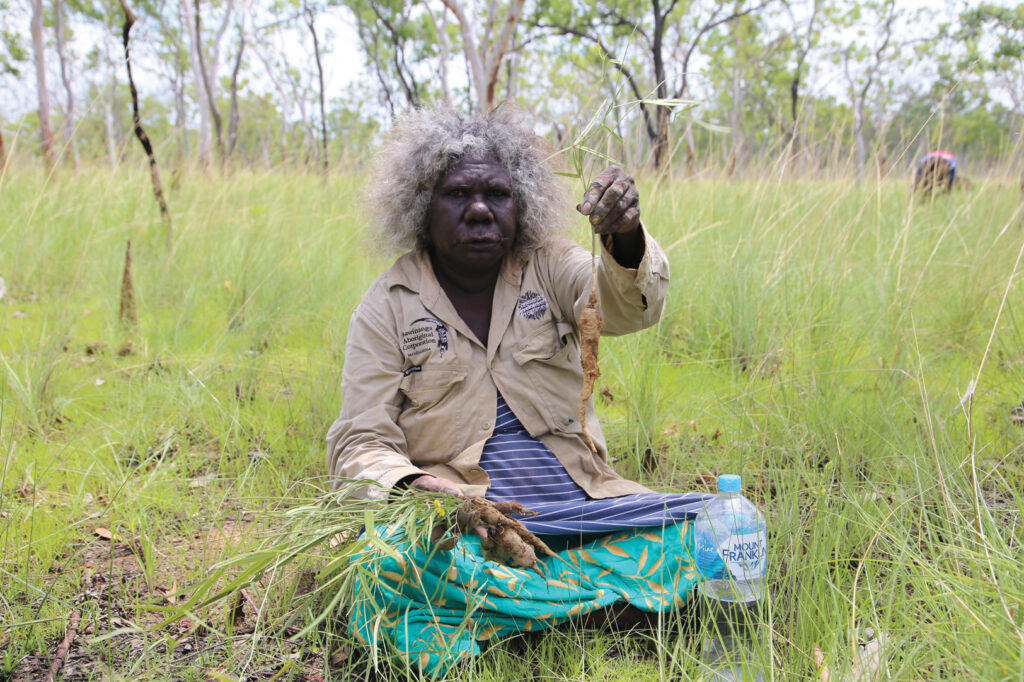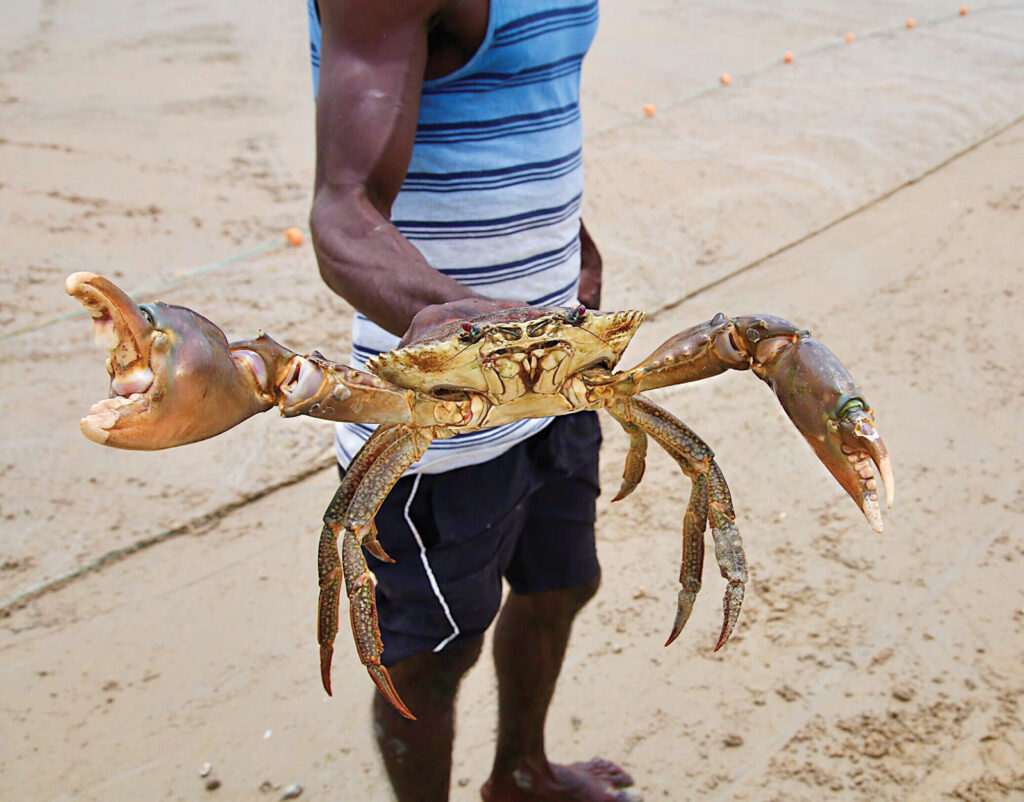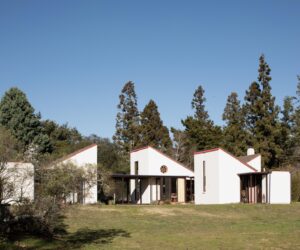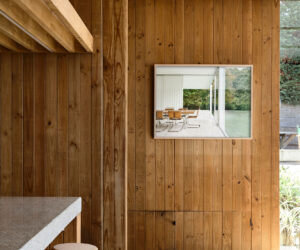Bountiful
Arnhem Land’s Maningrida Wild Foods is a social enterprise initiative that works with Traditional Owners to share the bounty of their land and sea.
The Country near the mouth of the Liverpool River in northern Arnhem Land goes by a few names. For the Kunibídji people, the Traditional Owners of this place some 500 kilometres north-east of Darwin, it’s Manayingkarírra. Meanwhile, the neighbouring Kuninjku people call it Manawukan. In the English language, it’s known as Maningrida. Its most recent appellation partly makes up the name of Maningrida Wild Foods – a social enterprise initiative working with local Indigenous people to share the bounty of their land and sea with the community and wider Australia.
The Maningrida Wild Foods (MWF) brand was created in 2018 as part of Bawinanga Aboriginal Corporation (BAC). BAC represents and serves the Aboriginal people of the homelands and 32 outstations surrounding Maningrida, carrying out a range of services with respect to traditional lands, cultural practices and languages. MWF was conceived as an opportunity to balance “thousands of years of knowledge together with contemporary business systems.” Locals undertake wild harvesting, fishing and crabbing with an emphasis on sustainability and protection of the ecosystem.
Ingrid Stonhill, Chief Executive Officer of Bawinanga Aboriginal Corporation, explains that looking to the wealth of local knowledge to identify economic opportunities was the obvious move. “There’s not a lot out here in the beautiful middle of nowhere!” she reflects. “ … One of the things that we look at is what we have available to us through the land and what our Countrymen are used to doing. Dealing in food and land is very much a part of who they are.”
MWF’s native foods range includes manmarlak Kakadu plums, djarduk apples, bulkud carrots and ngerdi green ants. Seafood ranges from barramundi to mud crabs – which are so popular with locals that orders come in before the produce makes it off the barge. Everything is harvested by Countrymen. “This is Aboriginal land and it’s Aboriginal sea so I think it’s fantastic that this initiative is working for them to harvest their food,” Ingrid notes. One hundred per cent of MWF’s income stays in the region and since its inception, over 150 harvesters have been involved in operations.
While feeding locals is MWF’s priority, produce is also for sale to other parts of Australia. Their great challenge, however, is transporting often highly perishable items via barge or airlines in a place so remote, there’s no road access for five months a year because of flooding rain.
Despite these hurdles, MWF has made connections with top restaurants including Melbourne’s acclaimed Attica. Last year, Maningrida locals Leila and Wayne visited the restaurant for a lunch made using their produce, joined by the Attica team. “We felt incredibly privileged to have that opportunity,” Ingrid remembers. “That’s not something that happens every day for us! For us, it’s about being able to feed our community first but we’d absolutely welcome the opportunity to share what we have and to do that with Attica was amazing.”
For MWF, sustainability is a long-term and holistic reality. Their produce may grow (and technically, roam) freely in the wild, but the vision is to propagate passion for working on Country in younger generations. Ranging from education programs, training and internships, MWF seeks to support the continuation of Indigenous knowledge. Ingrid summarises: “Culture is a massive part of what we do here, and affiliation with land is part of [the] community’s being.”
